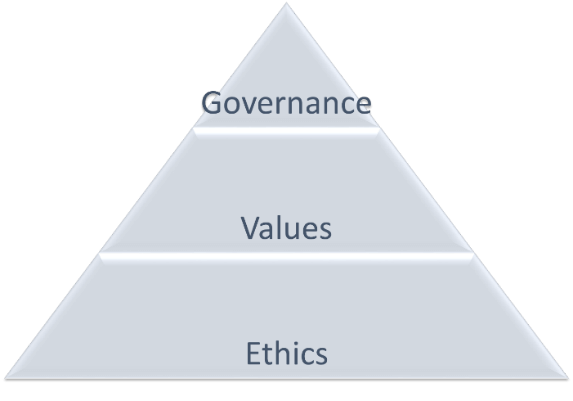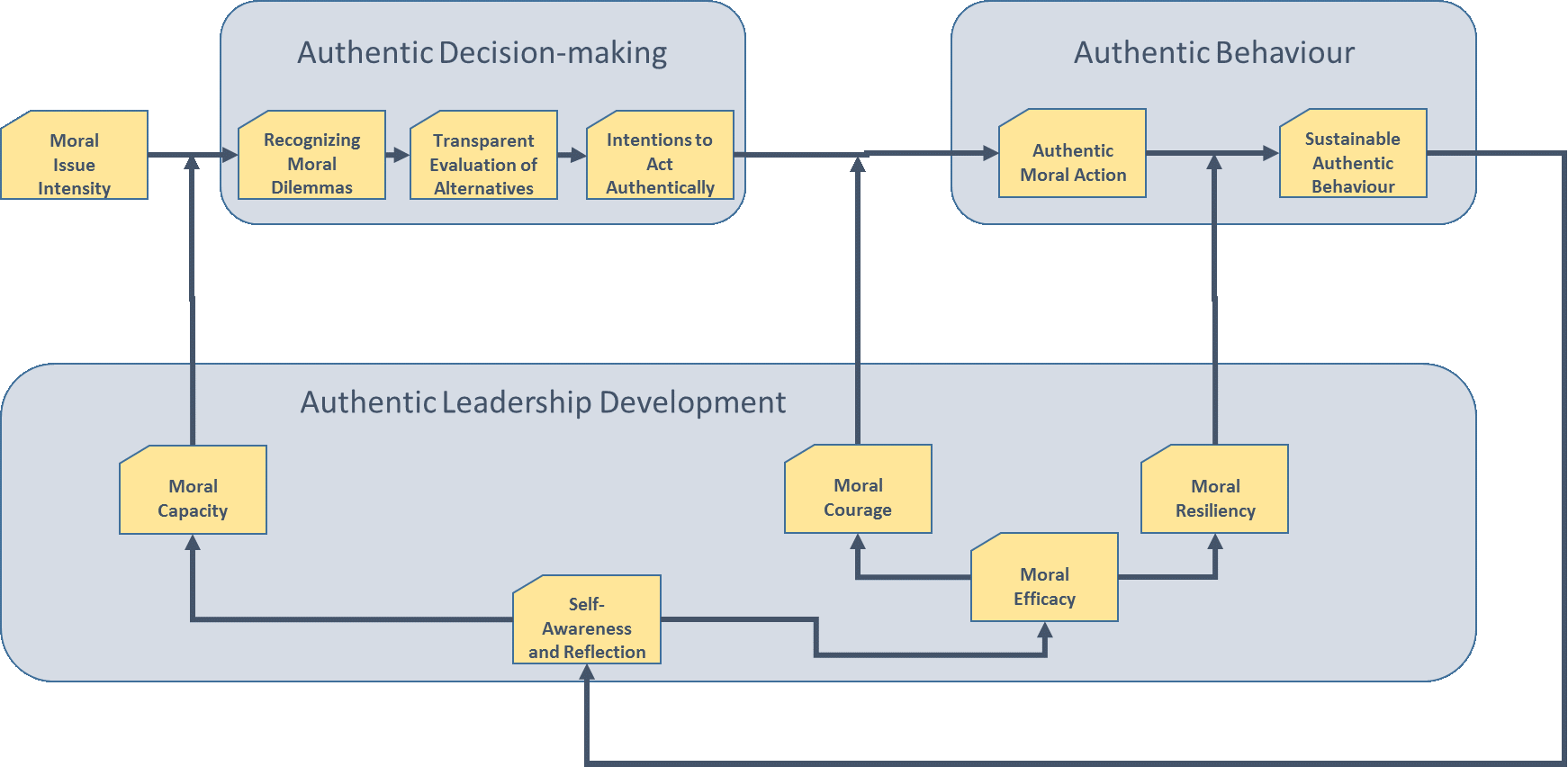Peter Drucker (2001) famously stated that “management is about doing things right; leadership is about doing the right things.” The question needs to be asked from a Project Management perspective – “Am I an ethical Project Manager?”
According to the Centre for Ethical Leadership (2015), “ethical leadership is knowing your core values and having the courage to live them in all parts of your life in service of the common good.” The recent crisis in the financial markets has turned a spotlight on the ethical aspects of all organizations, including its Project Management Office (PMO).
As with all Project Management concepts, there are many frameworks available that describe ethical leadership and its impact on an organization. Dr. Jonathan Westrup (2015) presented a simple model that illustrates how an organization’s ethics determines their values and ultimately impacts their governance (Figure below).

The Ethics, Values & Governance Pyramid
Ethics
Ethics can be simply defined as a set of beliefs about right and wrong. Companies face daily dilemmas that require choosing between competing sets of values and priorities to satisfy multiple stakeholders. Ethical issues involve how to disperse benefits and harm among stakeholders. An example of an ethical decision for a Project Manager would be should I “gold-plate” a project, i.e. the addition of any feature not considered in the original scope plan?
Values
Values are defined as constructs representing generalized behaviors or states of affairs that are considered to be important by the individual. Put more simply, they are representations of our behavior based on what we see as important.
Values need to be aligned with concrete mechanisms in an organization in order to work; an example of values in a PMO would be the choice of Project Management Methodology used in the organization.
Governance
Governance is the system by which organizations are directed and controlled. Organizations should be aligned with explicit and enacted values with clear expectations of appropriate behavior. For a PMO, it is the management framework within which project decisions are made.
Authentic Project Leadership
May et al. (2003, p.248) described the importance of authentic leadership and put forward the idea that it is ultimately knowing yourself and linking your values to your behaviors in each and every interaction that truly demonstrates authentic leadership. They build a framework for authentic decision-making; the figure below outlines the key dimensions in the process, behavior, and developmental opportunities.

Developing the Moral Component of Authentic Leadership
They state “most people have the innate potential to become an authentic moral leader.” Would someone shadowing you as a project manager on a busy day know you are trying to be an ethical leader? This is an opportunity for all project managers to evaluate their own leadership behavior from an ethical standpoint.
To help answer this, Banaji et al (2009, p.62) concluded that “simply knowing the magnitude and pervasiveness of your own biases can help direct your attention to areas of decision-making that are in need of careful examination and reconsideration. While the Project Management team may return with an honest “I am certainly trying,” it would at least create awareness of biases and preconceptions, their impact on decision-making, and more importantly, individual responsibility for developing and improving ethical leadership.
References
- Drucker, Peter F. (2000) ‘Essential Drucker: Management, the Individual and Society’, Butterworth – Heinemann.
- Grace, Dr. Bill, (2015), ‘Centre for Ethical Leadership’ available at: https://www.ethical leadership.org/
- Westrup, Dr Jonathan (2015), ‘IMI Diploma/UCC Postgraduate Certificate in Leadership’, Course Notes.
- May, D.R., Chan, A.Y.L., Hodges, T.D. and Avolio, B.J. (2003) ‘Developing the moral component of authentic leadership’, Organizational Dynamics, 32(3), pp. 248.
- Banaji, M.R., Bazerman, M.H. and Chugh, D. (2003) ‘How (un)ethical are you?’, Harvard Business Review, 81(12), pp. 62.
Editor’s Note: This post was originally published in May 2016 and has been updated for freshness, accuracy, and comprehensiveness.